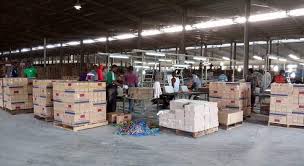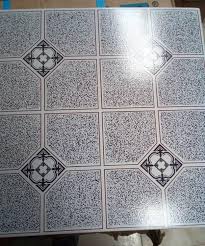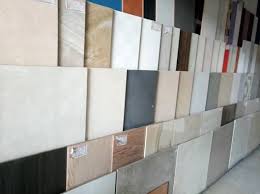![]()
If you’ve landed on this article page, you’re probably searching for a
good business idea—an idea that’s light on the pocket but heavy on
returns, promising both a fulfilling journey and potential profit.
|
How To Start A Ceramics Production & Supply Business in Nigeria
Ceramics refer to a diverse group of inorganic, non-metallic
materials typically made from clay, silica and other minerals,
shaped into various forms and fired at high temperatures.
Ceramics have been an integral part of human culture for
centuries, and in modern times, their demand has only continued
to grow. The Ceramics Production and Supply Business in Nigeria
is a thriving industry with vast potential for growth and
economic impact. Ceramics have been an integral part of African
culture for centuries, and today, this industry is expanding to
meet both local and global demands.
Ceramics tiles are products made from clay materials fired at
very high temperatures. Despite local availability and
accessibility of the materials in abundance, less than 11% of
ceramic tiles consumed in Nigeria are produced locally using
imported raw materials.
Currently, the ceramics market in Africa is growing steadily,
driven by factors such as urbanization, construction, and
increasing consumer interest in pottery and ceramic art.
Nigeria, being one of the most populous countries in Africa,
holds a significant share of this market.
You can make any business profitable as long as you generate
revenue that’s greater than your expenses. Set up a product
price for end users, agents and middlemen, taking into account a
comfortable markup that gives you a profit after considering all
expenses. To get high returns, keep your rent reasonable, make
sure your inventory is balanced and fast moving, maintain a
well-trained staff, and above all, make sure to have a high
volume of sales.
Nigeria, in particular, has a long tradition of pottery and
ceramic art, with numerous skilled artisans and craftsmen. The
demand for ceramic products, ranging from tiles for construction
to beautifully crafted pottery, is on the rise both locally and
regionally.
Business Opportunities In The Ceramics Production and Supply
Business In Nigeria
1. Raw Material Supply: Entrepreneurs can venture into the
extraction and supply of raw materials like clay, feldspar, and
silica, which are essential for ceramics production.
2. Ceramics Manufacturing: Setting up ceramics production units
to manufacture various ceramic products, such as tiles, pottery,
and sanitaryware, presents a significant business opportunity.
3. Artisan Training: Establishing training centers to equip
artisans with ceramic crafting skills creates opportunities for
skill development.
4. Retail and Distribution: Operating retail outlets or
distribution networks for ceramics products is a profitable
venture, especially in urban areas.
5. Export Business: Facilitating the export of ceramics products
to international markets can be lucrative due to the global
demand for unique ceramics.
6. Ceramic Design Services: Offering design services for
customized ceramics products, such as tiles with unique
patterns, caters to niche markets.
7. Online Sales Platforms: Developing e-commerce platforms for
selling ceramics products can tap into the growing online
consumer base.
8. Interior Design Collaboration: Collaborating with interior
designers to supply ceramics products for home and commercial
projects.
9. Architectural Consultancy: Providing architectural
consultancy services specializing in ceramic materials and
applications.
10. Recycling Solutions: Developing eco-friendly ceramic
recycling methods and businesses can address sustainability
concerns.
11. Manufacturing Equipment Sales: Selling ceramics
manufacturing machinery and equipment to new entrants in the
industry.
12. Quality Control Services: Offering quality control and
testing services for ceramics products ensures compliance with
international standards.
13. Franchising: Creating franchise opportunities for
established ceramics brands to expand their market presence.
14. Art Galleries: Opening galleries to showcase and sell unique
ceramic art pieces, attracting art collectors and enthusiasts.
15. Eco-friendly Ceramics: Focusing on the production of
eco-friendly ceramics products can align with sustainable and
green business trends.
The Ceramics Production and Supply Business in Nigeria and
Africa offers diverse opportunities for entrepreneurs and
investors across the value chain.
How To Start The Ceramics Production and Supply Business In
Nigeria
1. Market Research and Feasibility Study: Begin by conducting
thorough market research to identify the demand for ceramics in
your target region. Assess the competition, potential customers,
and market trends.
2. Business Plan Development: Create a detailed business plan
outlining your business goals, strategies, budget, and financial
projections. This plan will serve as a roadmap for your ceramics
production and supply business.
3. Legal Requirements: Register your business and comply with
all legal requirements and regulations in Nigeria and Africa.
Obtain the necessary licenses and permits.
4. Location and Facilities: Secure a suitable location for your
ceramics production facility. Ensure it has ample space for raw
material storage, production equipment, and finished goods.
5. Raw Material Procurement: Establish a reliable supply chain
for raw materials like clay, kaolin, and glazes. Consider
negotiating bulk purchase agreements to reduce costs.
6. Equipment and Technology: Invest in the necessary ceramics
production equipment and technology. This includes kilns, molds,
mixing machines, and glazing equipment.
7. Workforce: Hire skilled artisans and technicians with
experience in ceramics production. Training programs may be
required to enhance their skills.
8. Production Process: Develop a streamlined production process,
from clay preparation to firing and glazing. Implement quality
control measures to ensure consistent product quality.
9. Branding and Marketing: Create a strong brand identity and
marketing strategy. Establish an online and offline presence to
reach potential customers.
10. Distribution and Sales Channels: Identify distribution
channels for your ceramics products. This can include setting up
your store, partnering with retailers, or selling online.
11. Quality Assurance: Implement strict quality control measures
to maintain high-quality ceramics. Conduct regular product
testing and quality checks.
12. Sustainability Practices: Consider eco-friendly and
sustainable production practices to align with modern consumer
preferences.
13. Financial Management: Manage your finances prudently. Keep
accurate records, track expenses, and ensure you have access to
working capital.
14. Scaling and Expansion: As your business grows, explore
opportunities for expansion into new markets or diversifying
your product range.
15. Compliance and Regulations: Stay updated on industry
regulations and compliance requirements to avoid legal issues.
Types Of Equipment & Tools Used In The Ceramics Production and
Supply Business In Nigeria or Africa
1. Clay Extruder: A clay extruder is used to shape clay into
uniform forms, especially for pottery and ceramics production.
2. Pottery Wheel: Pottery wheels are essential for throwing clay
pots, vases, and other vessels on a spinning platform.
3. Kiln: Kilns are used for firing ceramics at high temperatures
to vitrify the clay and set the glazes.
4. Pugmill: Pugmills mix and de-air clay to make it ready for
shaping.
5. Slab Roller: A slab roller is used to flatten clay into
sheets for hand-building pottery.
6. Spray Booth: Spray booths are employed for applying glazes
and colors to ceramics evenly.
7. Ball Mill: Ball mills grind materials like clay and minerals
to fine powders, essential for glaze preparation.
8. Sieves: Sieves help in sifting out impurities from raw
materials like clay and glazes.
9. Banding Wheels: Banding wheels facilitate the decorating and
glazing process by allowing controlled rotation of ceramics.
10. Ceramic Molds: Molds are used for creating uniform shapes in
ceramics, especially for slip-casting.
11. Sieve Shakers: These machines automatically sieve materials,
saving time in the production process.
12. Drying Racks: Drying racks provide a space-efficient way to
air-dry ceramics after shaping and glazing.
13. Pottery Tools: Various hand tools, like ribs, loop tools,
and sponges, are used for shaping and detailing ceramics.
14. Work Tables: Sturdy work tables are essential for
assembling, decorating, and glazing ceramics.
15. Glaze Mixing Equipment: Equipment such as blungers and
mixers are used to prepare ceramic glazes.
16. Hydrometers: Hydrometers help measure the specific gravity
of ceramic glazes.
17. Digital Scales: Accurate scales are necessary for measuring
raw materials and glaze ingredients.
18. Calipers: Calipers are used for precise measurement during
shaping and trimming.
19. Safety Gear: Safety equipment like goggles, masks, and
gloves protect workers from dust and chemicals.
20. Packaging Machinery: Packaging equipment includes sealing
machines, labelers, and scales for packaging finished ceramics.
21. Storage Shelves: Sturdy shelves are needed for organizing
and storing ceramics before and after firing.
22. Pallets: Pallets are used for transporting ceramics in bulk.
23. Delivery Vehicles: Depending on the scale of the business,
delivery vehicles are essential for transporting ceramics to
retailers and customers.
24. Forklifts: Forklifts assist in handling heavy ceramic
products within the production facility.
25. Pallet Wrappers: These machines secure palletized ceramics
for safe transport.
Properly equipped facilities and machinery ensure efficient
ceramics production and supply in Nigeria and Africa.
Get our Practical
Training Guide on how to start a Ceramic Tiles manufacturing
Business. The production plant is expected to operate for 8
hours in a day and 300 days per annum. The plant is expected to
produce 192
sq. meters of tiles in a day {working for 4 hours} and 192 sq.
meters of marbles in a day {working for 4 hours}. The required
startup capital estimate of the business is about
N25M million Naira of which includes production machine
cost of about N8M.
lower scale of machinery would cost Less. Projected Net profit
before tax is N15.8
million in the first year respectively with
Balance of cash flow and Net fixed assets at the same
first year at N15.4 million and N.18.6million respectively.
Payback is within the 18 months of operation.
The detailed and comprehensive report according to scale of
production cover can be made available to you on request. It
will cover all the aspects of the project, from analyzing the
market, confirming availability of various necessities such as
plant & machinery, raw materials, manufacturing techniques and
forecasting financial aspects by estimating the cost of raw
material, formulating the income statement, balance sheet and
cash flow.
|







